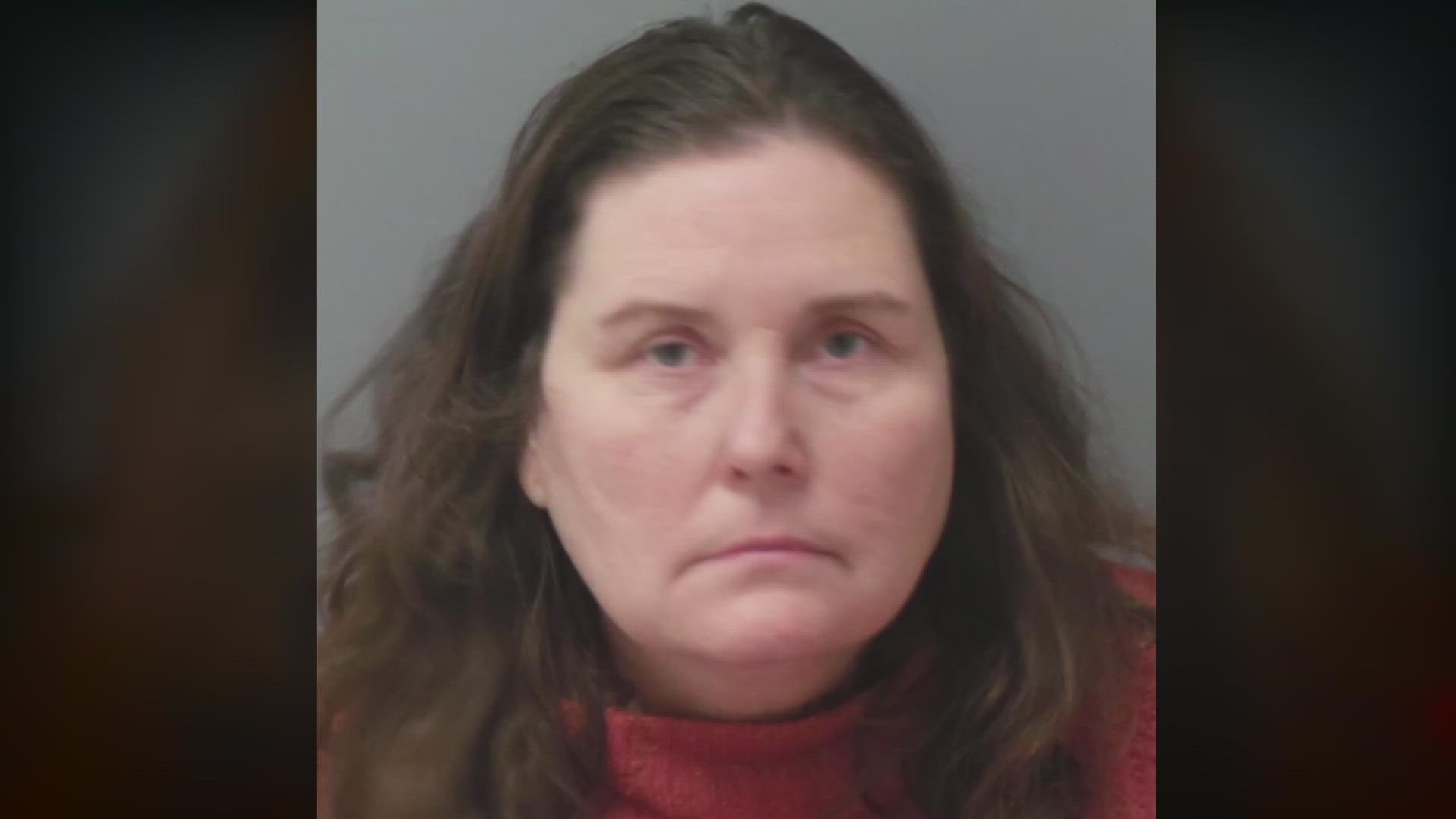ST. LOUIS — Judy Kline was officially charged just 24 hours ago with three felonies after a video of her harassing a south St. Louis family went viral.
She was charged with first-degree burglary, first-degree property damage and unlawful use of a weapon.
Kline is accused of harassing and threatening a Latino family in south St. Louis.
"Illegals live in here,” Kline can be heard screaming at a Ring doorbell camera. “Get out! You're a bunch of illegals that don't belong on American property. Get out!"
In another video you hear, "You're not American. Get off my property! Did you have something to do with 9/11?"
Fatima Suarez said this tirade began in January 2022 at her parents' home.
Suarez took the aggressive interactions to TikTok over the months, but in the last week, a TikToker with millions of followers shared the story.
"Since I didn't see any action taken, that's why I went to TikTok and you see now they are trying to help us," she said. "I want my family safe and nothing to happen to them."
Suarez said Kline even broke into her parents' house, beat their door in with a hammer and stole their mail.
"One time, we approached her, and she said she's going to kill my family,” Suarez said.
Suarez told 5 On Your Side Kline is not under arrest and said an attorney in the circuit attorney's office told her Kline is receiving psychiatric treatment at a St. Louis hospital.
5 On Your Side learned from personal property records and a neighbor share that Kline used to live in that home.
We've also learned through court filings Kline was placed under guardianship from 2006 to 2017.
The documents share Kline was "adjudicated incompetent as a result of a mental illness".
In the court filings, it said the guardian and conservator was terminated in 2017 and Kline had fully recovered her mental capacity and is now capable of caring for her person and financial affairs.
Dr. Bart Andrews with Behavioral Health Response said, "Anybody that met criteria to have legal guardianship as an adult has had some serious health or mental health issues."
He continued to explain this doesn't excuse the racist behavior, but it offers some insight.
"It is important to acknowledge that sometimes people are really not well when engaging in this conduct," Dr. Andrews said.
The St. Louis Metropolitan Police Department has a partnership with BHR to have clinicians on scene when it comes to these types of cases.
Suarez said she didn't see any clinicians at her house when police were there.
Dr. Andrews said the goal is for them to be there for these types of calls and they can help.
"If the person has behavioral health needs, we're going to work very actively to get that person connected with appropriate services," Dr. Andrews said.
As far as why it took so long for charges to be filed, the circuit attorney's office said police put the case in a non-urgent, drop-off folder and they didn't have the videos at the time.
Suarez tells 5 On Your Side she showed police the videos back in January and gave them a video of the mail being taken in March, but didn't send them copies until Dec. 2022.
Suarez said, while it's not OK what's happened, she has some clarity.
"I want to see action, I want to see her get locked up or a mental facility, but I want proof that they are doing something about it," she shared.
Wilford Pinkney, Director of the Office of Violence Prevention shared this:
The City of St. Louis, Office of Violence Prevention, and St. Louis Metropolitan Police Department maintain consistent contact with our partners at Behavioral Health Response to provide mental health services to the community. While we cannot disclose personal health information regarding this situation due to HIPAA, we can confirm the CRU unit was deployed as recently as today to follow up on the most recent incident, but were unable to locate Judy Kline at any of her previously known locations. SLMPD responded quickly to each incident involving Ms. Kline, and is also following up with the victims.
In most cases, the Crisis Response Unit (CRU) responds to calls for help for individuals facing mental health crises or substance abuse issues, as well other non-criminal conflicts. This program has already saved the city significant manpower and resources, saving police and EMS more than 2,000 work hours just in its first nine months.

